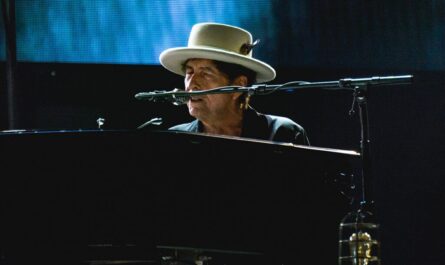The magic behind Linda Ronstadt was always about finding the right song.
As much as her music came back to her show-stopping voice, she knew that she could hardly sing a note if it weren’t for the songwriter writing a tune that she could put her entire soul into singing. And while she has sampled bits and pieces of the finest songwriters of her time, she knew when she was dealing with a true musical genius when she started to work.
Then again, Ronstadt’s taste for classic songwriters was a lot more nuanced than the ones that we look at today. Lennon and McCartney might still be the litmus test by which all great pop musicians are measured, but the singer-songwriter scene that Ronstadt was born out of was a much different story. She was born and raised in the generation that spit out everyone from Randy Newman to Jackson Browne to Warren Zevon, and you could practically hear the heartache in their voices whenever they sang.
Ronstadt may have done a serviceable job doing versions of Eagles’ ‘Desperado’, there was always far more to her voice than singing rock and roll. She never exactly considered the genre her strong suit by any stretch, and even when looking through her back catalogue, the biggest chances that she ever took normally came from records that were far more elaborate than what she had been doing before.
What’s New was the moment everyone realised pop artists could also perform jazz standards, and when she started singing in different languages, she opened up a whole new world for what pop singers could be. She had finally graduated to covering songs by geniuses like Burt Bacharach, but even at the dawn of rock and roll, Brian Wilson was one of the few artists that could hang with the biggest writers that the world had ever seen.
Despite being one of the most humble men in the world, Wilson had a gift for melody that no one else could really match in his prime. There were pieces of his music that may have been a bit more mindless than others, but there was never a point where he compromised his musical expertise when singing one of his traditional surfing songs.
He approached music like his one true love, and Ronstadt felt that there were few that could ever compare to what Wilson did, saying, “There’s a purity about the way that he expresses himself that’s just so straightforward. He’s a true genius as a musician and I love the way that he writes harmonies and the way the words fit them in that pure straight forward way. He’s one of the few that were able to structure harmonies and voicings like the great classical masters.”
But when listening to Wilson’s music, there are subtle hints of the greatest composers of all time in how he constructs melodies. There are others that labour for weeks over the subtle movements in harmony, but whenever Wilson stepped up to make a new tune, it would come out so naturally that you would have thought that his ears were blessed by Mozart from the very first note.
Not every one of his songs had to be the most introspective tune in the world, but even beyond records like Pet Sounds, Wilson was looking to do more than mindless pop rock. He wanted to expand his musical vocabulary in every way he knew how, and judging by the kind of legacy he has left behind, modern songwriters aren’t only looking at him as a rock star. They’re looking at his work the same way that most artists look back on Picasso.





